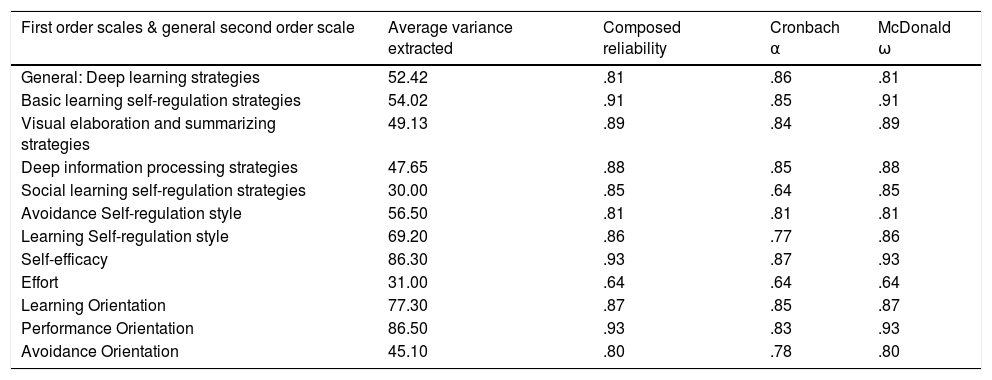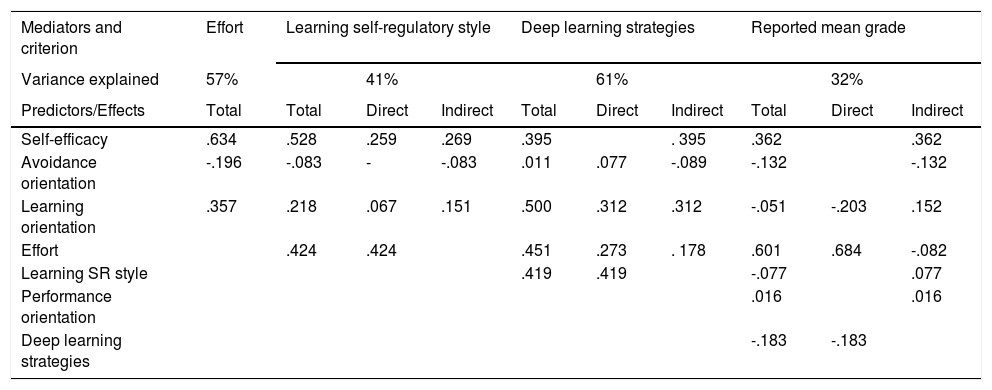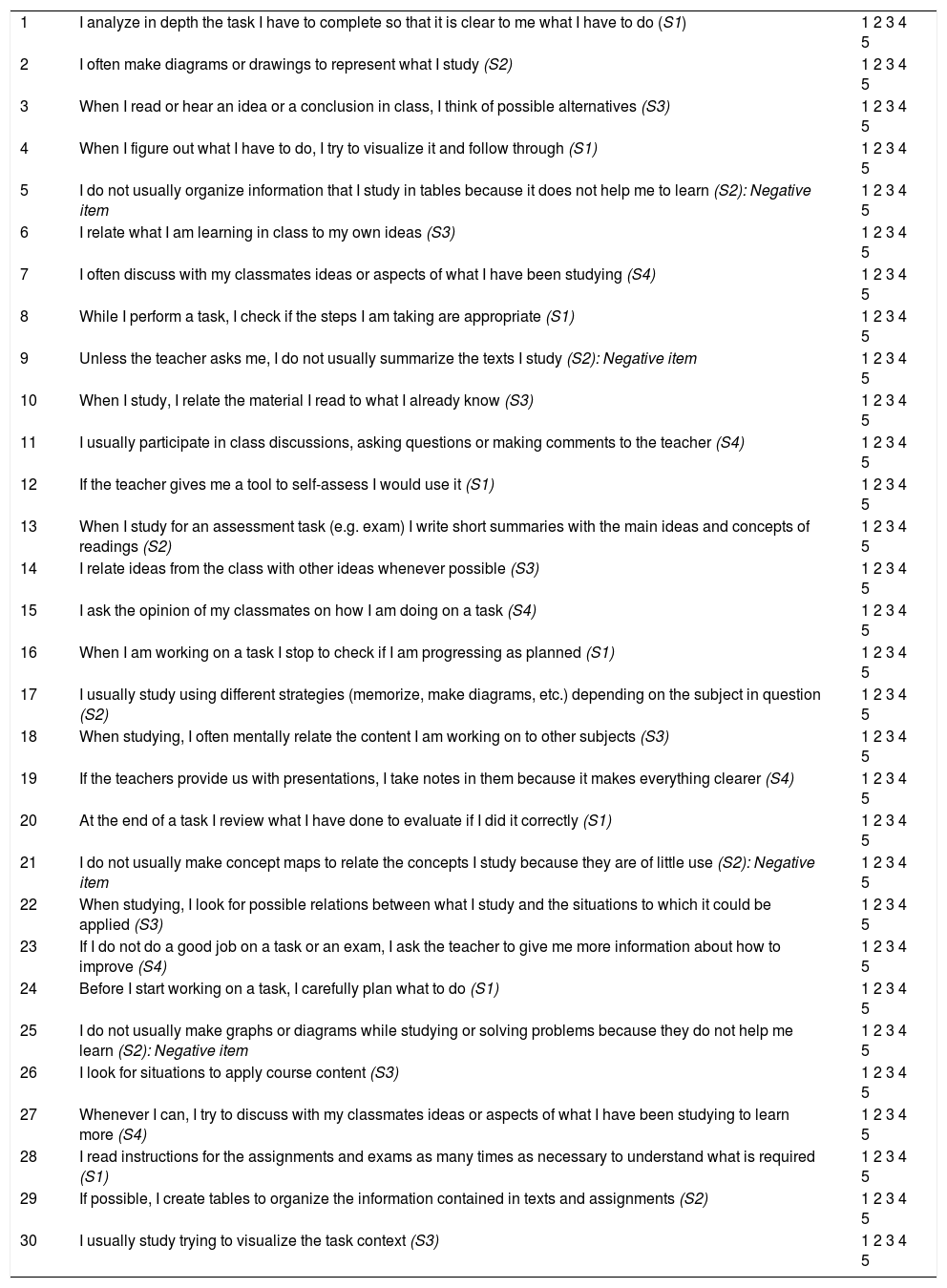Measuring self-regulated learning is crucial to improve our educational interventions. Self-report has been the major data collection method and a number of questionnaires exist. Importantly, the vast majority of the questionnaires are constructed from general theoretical models. Our aim was to develop a model and its questionnaire –i.e. Deep Learning Strategies questionnaire- to investigate how students regulate their learning strategies in more realistic learning situations. Four scales were created: (1) Basic learning self-regulation strategies; (2) Visual elaboration and summarizing strategies; (3) Deep information processing strategies; and (4) Social learning self-regulation strategies. A total of 601 higher education students formed the sample. We analyzed, first, the internal validity of the questionnaire. Three structural models were tested: (M1) mono-factor; (M2) scales correlate among them freely, and (M3) the scales are indicators of a general construct. The latter model showed a slight better fit. Additionally, a path analysis was carried out to study the degree in which the use of the Deep learning strategies depends on personal factors and is associated to performance. It was found that the use depends directly and positively on learning goal orientation, on the self-messages defining the self-regulation style of emotion and motivation focused on learning, and on effort. Besides, these two last variables convey the effect of self-efficacy that, at the same time, affects effort. Academic performance, depends positively on effort but negatively to the use of deep learning strategies. It is hypothesized this negative relationship is due to the method of measurement of academic performance.
Medir el aprendizaje autorregulado es fundamental para mejorar nuestras intervenciones educativas. Los cuestionarios de autoinforme han sido el principal método para su evaluación, con la mayoría de instrumentos construidos a partir de “modelos teóricos” generales. Frente a estos, este estudio valida un modelo basado en situaciones realistas de aprendizaje observadas en los alumnos. El Cuestionario de estrategias profundas de aprendizaje, tiene cuatro escalas: (1) Estrategias básicas de autorregulación del aprendizaje; (2) Estrategias de elaboración visual y de resumen; (3) Estrategias de procesamiento profundo de información; y (4) Estrategias sociales de autorregulación del aprendizaje. Participan 601 estudiantes universitarios. Primero, se ha analizado la validez interna del cuestionario, contrastando tres modelos: (M1) monofactorial; (M2) cuatro grupos de estrategias correlacionando libremente entre ellas; (M3) el factor de cada grupo de estrategias es indicador de un constructo latente general, modelo que resulta ligeramente mejor ajustado. Segundo, se ha realizado un análisis de rutas para estudiar si el uso de las estrategias de aprendizaje profundo depende de factores personales y predice el rendimiento. Se ha encontrado que depende directa y positivamente de la orientación hacia el aprendizaje, de los automensajes que definen el estilo de autorregulación de la emoción y la motivación centrado en el aprendizaje, y del esfuerzo. Además, estas dos últimas variables dependen de la autoeficacia que, a su vez, incide en el esfuerzo. El rendimiento ha dependido positivamente del esfuerzo y, negativamente, del uso de las estrategias de aprendizaje profundo. Esta relación negativa puede deberse a cómo se evalúa el rendimiento académico.
















